LOVELL — For someone to win, 7,254 others had to lose.
Most did so graciously. Sure, they wanted to own the quaint bed-and-breakfast in the western Maine mountains, but all they really lost was the time they spent crafting their short essay, a $125 entry fee and a fleeting dream.
But some didn’t go nearly as quietly.
From the moment a winner was picked, they were convinced the contest was rigged.
Long before the paperwork was signed transferring ownership of the Center Lovell Inn from Janice Sage to essay contest winners Roger and Rose Adams, some of the contest entrants began complaining.
The complaints came from everywhere, ranging from whether the rules were changed, to whether the winners and Sage already knew each other, to whether the winning essay was grammatically correct.
The outcry grew loud enough that the Maine State Police investigated – a two-week probe that found no evidence of wrongdoing. But that only fueled the critics.
Others who thought the contest had been conducted fairly began to weigh in.
The two sides began sniping at each other, with some of the back-and-forth comments getting downright ugly, mostly on Facebook and the comment sections of news stories on the contest. The ugliest involved one contestant falsely accusing another of being a convicted murderer – and then refusing to recant.
How did a quirky, simple essay contest to win a bed-and-breakfast in rural Maine devolve into an online cesspool of negativity, turning strangers against one another so easily?
Dan Stone, a behavioral economist and professor at Bowdoin College, said the answers lie in the type of people who are drawn to such contests.
“Entrants in a contest like this are similar to both entrepreneurs and long-shot gamblers, and research has established both of these types of people tend to be overconfident in their chances of success,” he said. “So it’s not surprising that many entrants, after hearing they didn’t win, would look for other explanations and maybe be too quick to suspect foul play. There’s also research showing, as we’d expect, that conspiracy theories are more likely to arise and gain traction in the social media era.”
Some critics are still pushing for an investigation – a federal one this time – on the grounds that the essay contest violated Federal Trade Commission guidelines. An FTC representative would not comment on whether the agency is investigating.
The much-publicized contest involving the Center Lovell Inn has become something of a cautionary tale, both for would-be contestants and other business owners looking to capitalize on Sage’s success.
• • • • •
Janice Sage won ownership of the Center Lovell Inn with her then-husband, Richard Cox, in 1993 through a similar contest.
Bill and Susie Mosca, the original owners of the inn, a former antebellum mansion built in 1805, created the essay contest as a way to transfer their dream to someone else.

The new owners reopened the Center Lovell Inn recently. The previous owner, Janice Sage, also won the inn in an essay contest.
The couple likely were not the first business owners to sell property this way, but theirs generated buzz at the time, including a spot on “The Phil Donahue Show,” a popular TV talk show.
Bill Mosca, who still lives in Lovell, said he, too, faced backlash from some people who thought the contest was not run properly. Police even questioned them after some contestants complained.
“We are all there at the inn when the police showed up,” Mosca said, referring to himself, his wife and the Coxes. “It was a little spooky, but when you honestly know there is no dishonesty, you know it will blow over.”
In the end, the outrage dissipated. There was no Facebook to bring together like-minded critics or provide a forum for conspiracy theories.
In March this year, after trying to sell the property for several months, Sage launched her own essay contest. Like the first, she relied on the media to generate interest, but also used social media to spread the word.
Sage said her goal was 7,000 entries. At $125 per entry, that would have netted her $875,000 – 35 percent more than the $659,000 listing price.
She created a set of rules similar to those for the original contest and limited the essays to 200 words.
Sage later told police that she read each essay and “had the calloused elbows to prove it.” She did not open the envelopes herself. She never saw the contestants’ names. Each entry was assigned a number to be used to identify it.
She winnowed down the entries to 20, and sent them to two judges, who have not been identified but were interviewed by police. They selected the winner: Essay No. 2731, by Roger and Rose Adams of the U.S. Virgin Islands, previously of New York.
The winning essay, published in The Boston Globe, was similar to Sage’s essay more than two decades earlier, and was heavily biographical.
“My wife is the talented chef with a culinary degree, catering and restaurant management experience,” Roger Adams wrote. “I have marketing, inn-keeping, bartending and handyman skills.”
He equated running a successful business to managing a successful marriage: “Undoubtedly our passion, hospitality and commitment is the perfect recipe for a successful marriage to the beautiful Center Lovell Inn and Restaurant.”
Sage, who has not returned multiple phone calls or emails for comment, said after the winner was announced that the essay struck a chord with her because their dream and ambition sounded like her own.
Others, however, don’t believe her.
• • • • •
The losing contestants questioned whether the rules were followed.
After the winner was announced, the contest’s Facebook page was taken down immediately and the contest rules removed from the inn’s website.
Entrants Googled the winning couple and found that they owned a restaurant in the Virgin Islands, which some complained gave them an unfair advantage.
They also discovered that Roger Adams, who goes by the nickname Prince, had self-published a book on crowdfunding, an increasingly popular method to fund a wide variety of endeavors. That generated suspicions about how he won the essay contest.
Kelley Prass Collins, one of the most vocal critics, has alleged that Adams clearly had an advantage. But she said she also had problems with the entire contest.
“Contest sponsor Janice Sage and winner Prince Roger Adams have yet to address the public or answer any of the questions surrounding the Maine State Police investigation of the Center Lovell Inn essay contest,” Collins wrote. “Contestants want to know: the identities and qualifications of the contest judges, the number of entries received and an explanation of the fees and entries that were never accounted for, an explanation as to why the web presence of the contest … was wiped off the internet so quickly after the winner was announced.”
She was among several contestants who formed a Facebook page called Center Lovell Inn Fair Practices Commission, to unite people against the contest.
Angelina Jacobsen-Meerpoel said her biggest problem is that the winning essay did not adhere to the rules.
“Why was (Adams) exempt from having to follow the rules?” she said. “I believe it was because he seemed like the most able to accept the prize and absorb the tax burden of winning this contest.”
A formal essay has an introduction, body and conclusion, she said. The Adamses’ essay did not. Other accepted essays took the form of poems, which were not supposed to be allowed under the rules, some said.
Genneille Efram said she agonized over making sure her essay was formal and that, in doing so, her essay lost voice.
“That’s why, when I finally looked for the winning essay, my heart was broken,” she said.
Other critics focused their complaints on the selection process.
Jason Peers said he never got confirmation that his essay was received. He doesn’t know whether his essay was even read.
Some were upset that the winners had both restaurant and hospitality experience, though the rules stated that the winner would be judged in part on “capability and desire to operate a country inn.”
Christine McKenzie said she wrote three separate essays but feels like she never stood a chance. She believes Sage picked the winner based on qualifications rather than the quality of the essay.
Elizabeth Fulks said Sage was not upfront about several details, including how much land would be included in the transaction.
“Once these facts came to light, there were a lot of people who would not have entered the contest if they had known these facts beforehand,” she said.
People can’t even agree on what the rules said or didn’t say.
Four contestants made formal complaints to Maine State Police, enough to trigger an investigation.
Sgt. Michael Johnston, who oversaw the probe, made it clear from the outset that the state law governing such contests was not written with essay contests in mind. The investigators could only determine whether the contest awarded a winner based on skill – the quality of the essay – rather than chance, which would have made the contest an illegal lottery.
State police concluded that the contest’s only rule change was an extension of the deadline, which was allowed.
“Evidence was obtained that the rules were followed and the winner had been determined without improper influence,” the report concluded.
• • • • •
Judging the quality of an essay in any writing contest is inherently subjective. What may have appealed to Janice Sage or the unnamed judges may not have appealed to others.
Tim Hubbard, an economist at Colby College in Waterville, said one of the things that stood out to him was the vague description on how the winner would be chosen.
“Because the awarding rule was not made clear, this setting sounds more like what I would call a ‘beauty contest,'” Hubbard said.
When the critics began posting that they felt the contest was a scam, other entrants jumped in to offer their own points of view. They said they, too, were disappointed about losing but said criticizing the contest and nitpicking small details or discrepancies in the rules were just sour grapes.
Scott Babcock was one of those who defended the contest, even starting a change.org petition called “Support the Authenticity of the Center Lovell Inn and Restaurant Essay Contest.” More than 100 supporters signed it.
“We believe the former contestants behind this investigation are sore losers who wish to cast (aspersions) on the contest and on Ms. Sage rather than acknowledge that their essay didn’t take the prize because it was simply not a winning essay,” the petition read.
Within days, the critics went after Babcock. They searched his name and discovered that he had spent 16 years in prison for manslaughter when he was a teenager. They found his old mugshot and posted it with warnings.
Babcock was indeed convicted of manslaughter after a fight that left another man dead, but the critics didn’t reveal that after his lengthy incarceration, Babcock became a successful businessman. He said he entered the Center Lovell Inn essay contest to show the world that the system does work, that people can atone for mistakes.
Craig A. Bjork and his wife, Cynthia Wilson, commented on news stories about the contest, saying they thought the contest was great and the winners should be congratulated.
As with Babcock, some of the critics did a Google search for Bjork and Wilson and came up with Craig D. Bjork, who is serving a life sentence for multiple murders. Craig A. Bjork, on the other hand, is a retired U.S. Marine and oil industry professional.
Wilson said some commenters called her husband a murderer and never retracted it.
“They are wreaking havoc on the lives of innocent people, and I don’t see an end to it,” Wilson said. “It had been hoped that they would eventually give up their campaign and resume normal lives, but their misconduct is escalating to an alarming degree.”
Kelley Collins was among those who went after both Babcock and Bjork, said Wilson, who provided the Portland Press Herald with an online conversation between her and Collins.
After Wilson told Collins to stop calling her husband a murderer, Collins replied, “Oh shoot, well somebody must have thought your husband’s opinions sounded dangerously similar to those of a murderer. Sounds more like his problem than mine.”
When asked by a reporter why she still had such strong feelings about the contest, Collins accused him of bias and of covering up the truth.
Efram, one of the Facebook group’s administrators, admitted that some members “are more focused on fringe elements than others.”
The bigger goal, she said, is to regulate how these contests are conducted going forward.
“The important thing here is, we are all working towards the same end, and will likely see better results from our widespread efforts.”
But some contestants say they aren’t bitter about losing.
Tricia Spencer wrote a blog about her experience. She waited the night before the winner was announced with nervous energy and doesn’t regret allowing herself a dream.
“If we attempt new things, give our all and experience exhilaration from the effort, then if that’s not a win, I don’t know what is,” she wrote.
• • • • •
Even though weeks have elapsed since the contest ended, the anger of some contestants has not abated.
Public records indicate that the parcel of land that includes the Center Lovell Inn was only 4 acres, but the essay contest indicated the winner would get 12 acres.
Sage has never said why there was a discrepancy.
The Moscas owned the roughly 4-acre parcel that the inn sits on, as well as another, undeveloped adjacent 8-acre parcel.
When they turned over the inn to Janice and Richard Cox, the Moscas kept the 8 acres and deeded them to their daughters, Krista and Anna.
In 2004, the land was deeded back to the Moscas, who then deeded it to a woman named Jean Stearns, who owns property across the street and is a seasonal resident in Lovell.
Stearns deeded the property back to Janice Sage to be included in the new essay contest. Reached by telephone, Stearns refused to explain the arrangement in further detail.
Some of the critics have been watching to see when the inn would reopen under the Adamses’ ownership, noting that the inn’s website was no longer active.
The opening date was supposed to be July 10. That date came and went. Then it was pushed to July 17, but that was missed, too. The inn finally opened the week before last, but the critics have taken the missed deadlines as evidence that the contest was illegitimate.
Adams acknowledged that the delays created confusion but said he and his wife still had a lot of loose ends to tie up in the Virgin Islands. They are still trying to sell their business there, and most of their belongings haven’t been shipped yet.
“People can say or believe they can say whatever they want with no consequences,” he said. “There has been some ugly stuff.”
Adams said he has more to worry about than the feelings of disgruntled contestants who dispute his win.
As far as he’s concerned, the police investigation settled the question and he’s offended that people still think the contest may have been rigged.
He’s more worried the ongoing vitriol may affect his new business.
“I hope it doesn’t,” Adams said. “We love it here.”
Send questions/comments to the editors.



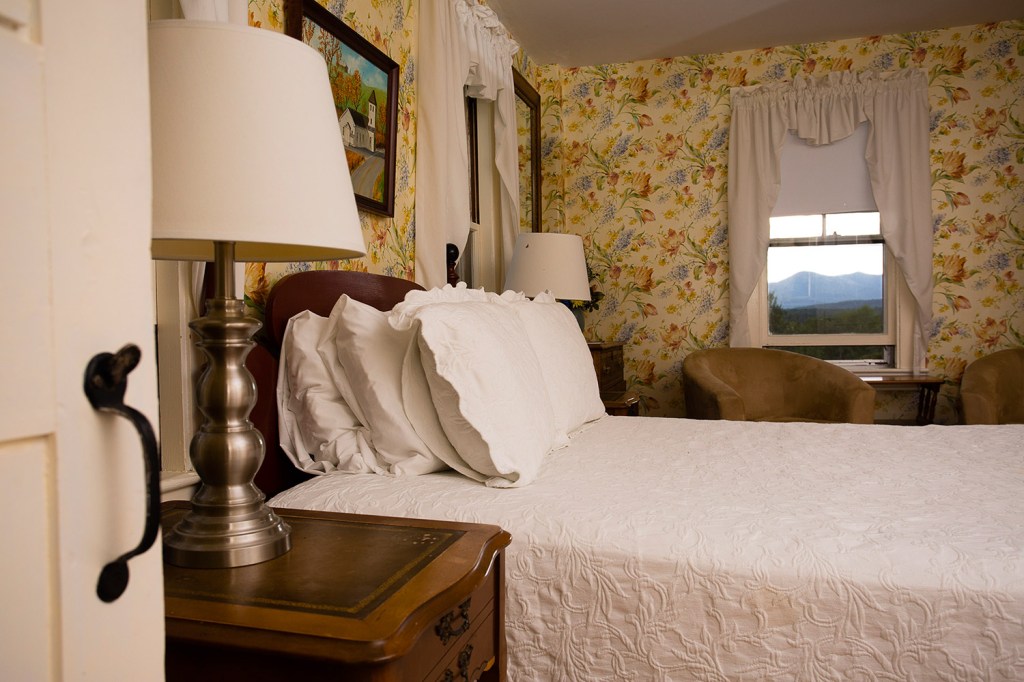
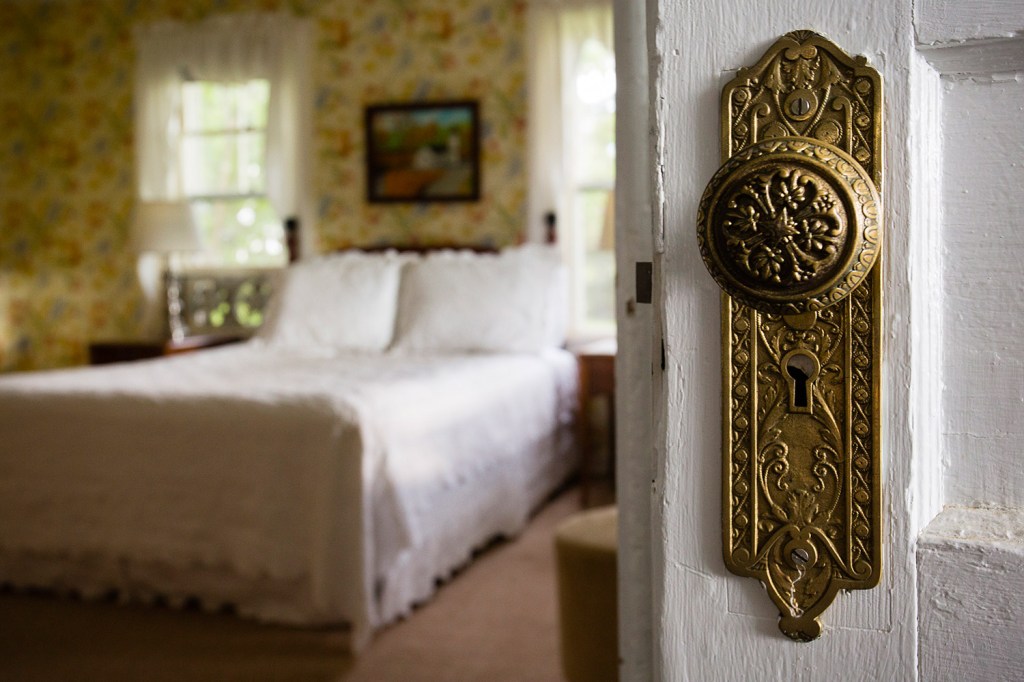
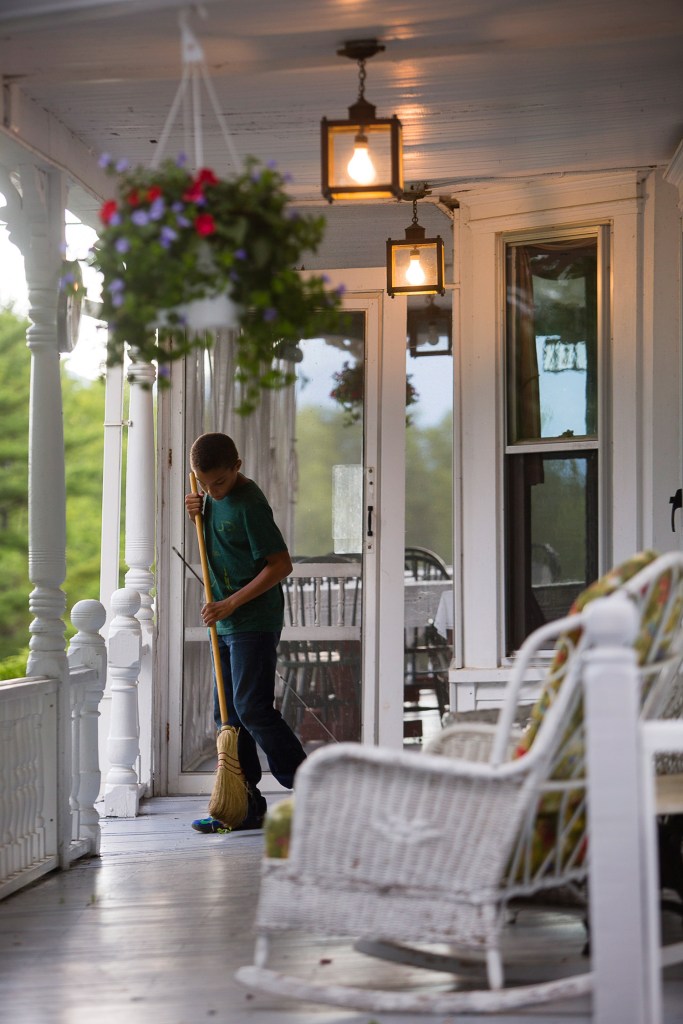
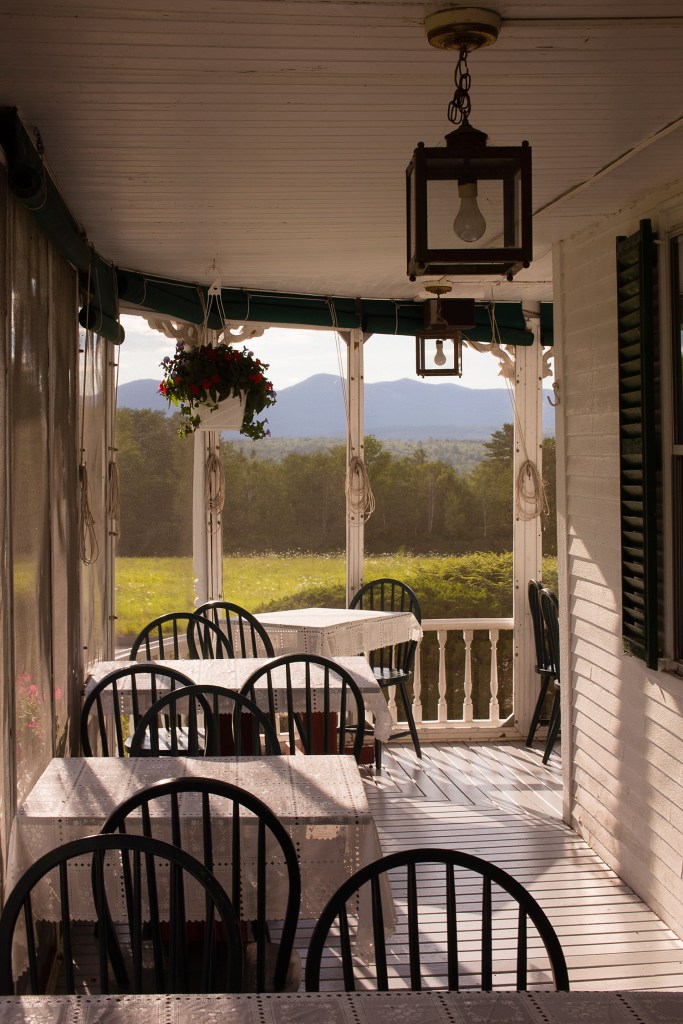
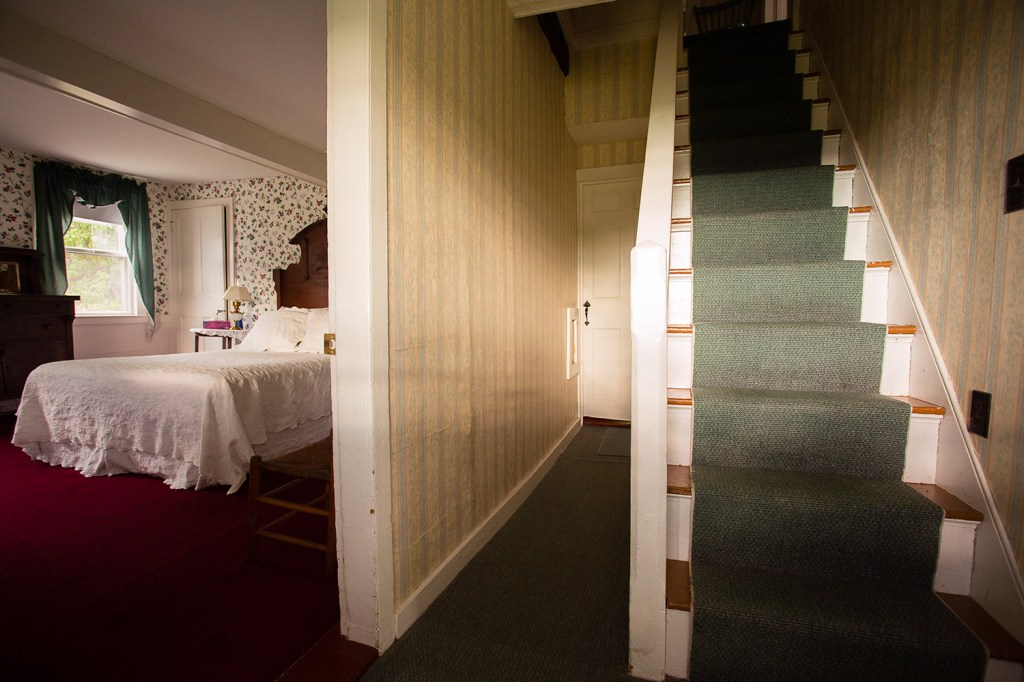
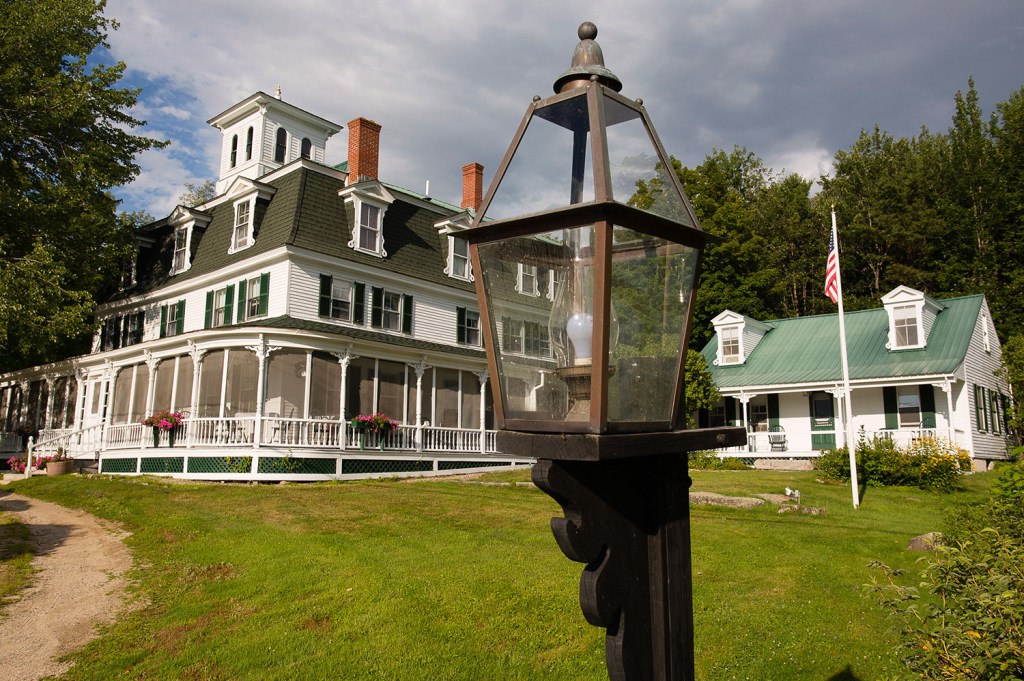

Success. Please wait for the page to reload. If the page does not reload within 5 seconds, please refresh the page.
Enter your email and password to access comments.
Hi, to comment on stories you must . This profile is in addition to your subscription and website login.
Already have a commenting profile? .
Invalid username/password.
Please check your email to confirm and complete your registration.
Only subscribers are eligible to post comments. Please subscribe or login first for digital access. Here’s why.
Use the form below to reset your password. When you've submitted your account email, we will send an email with a reset code.